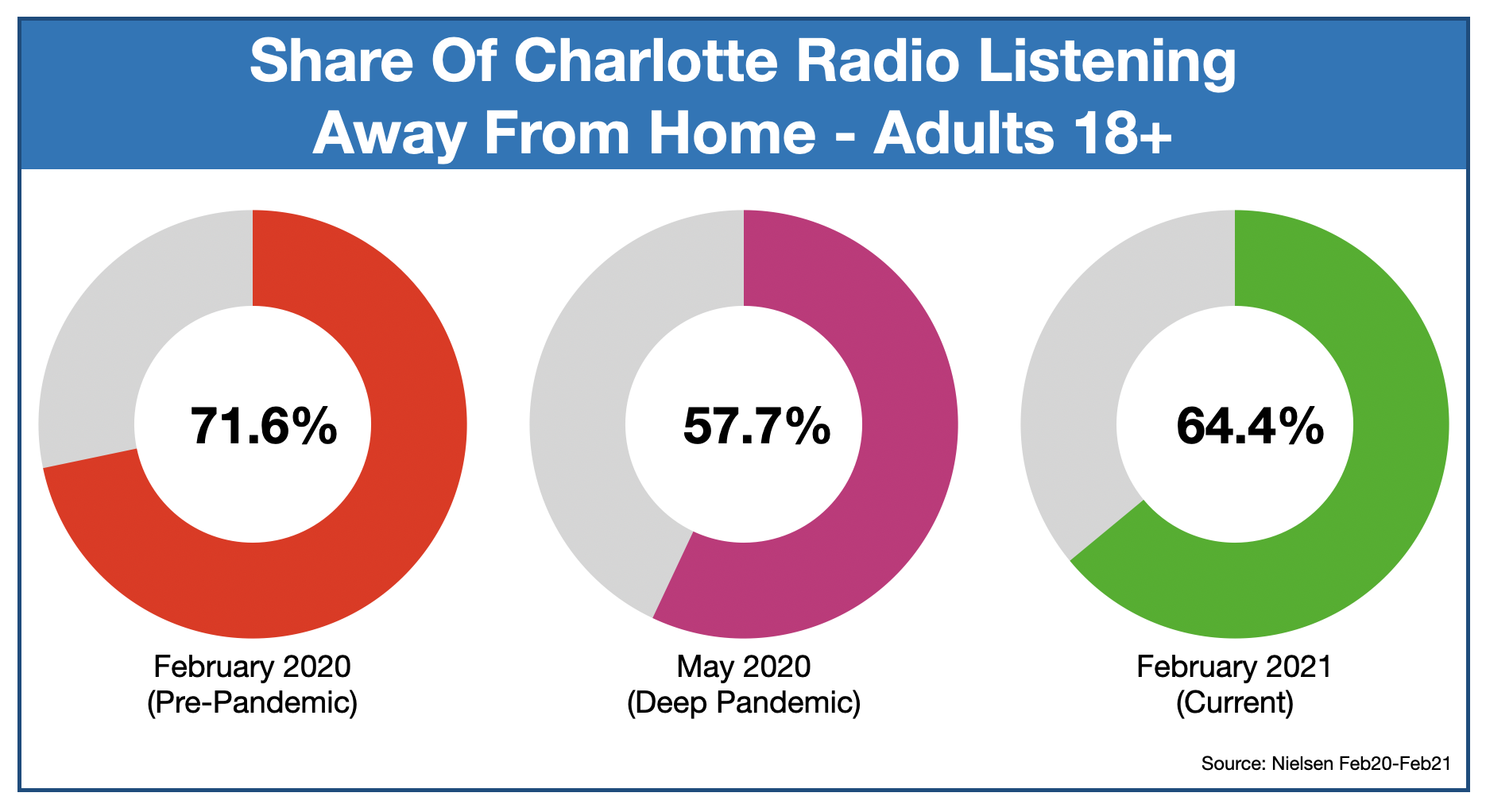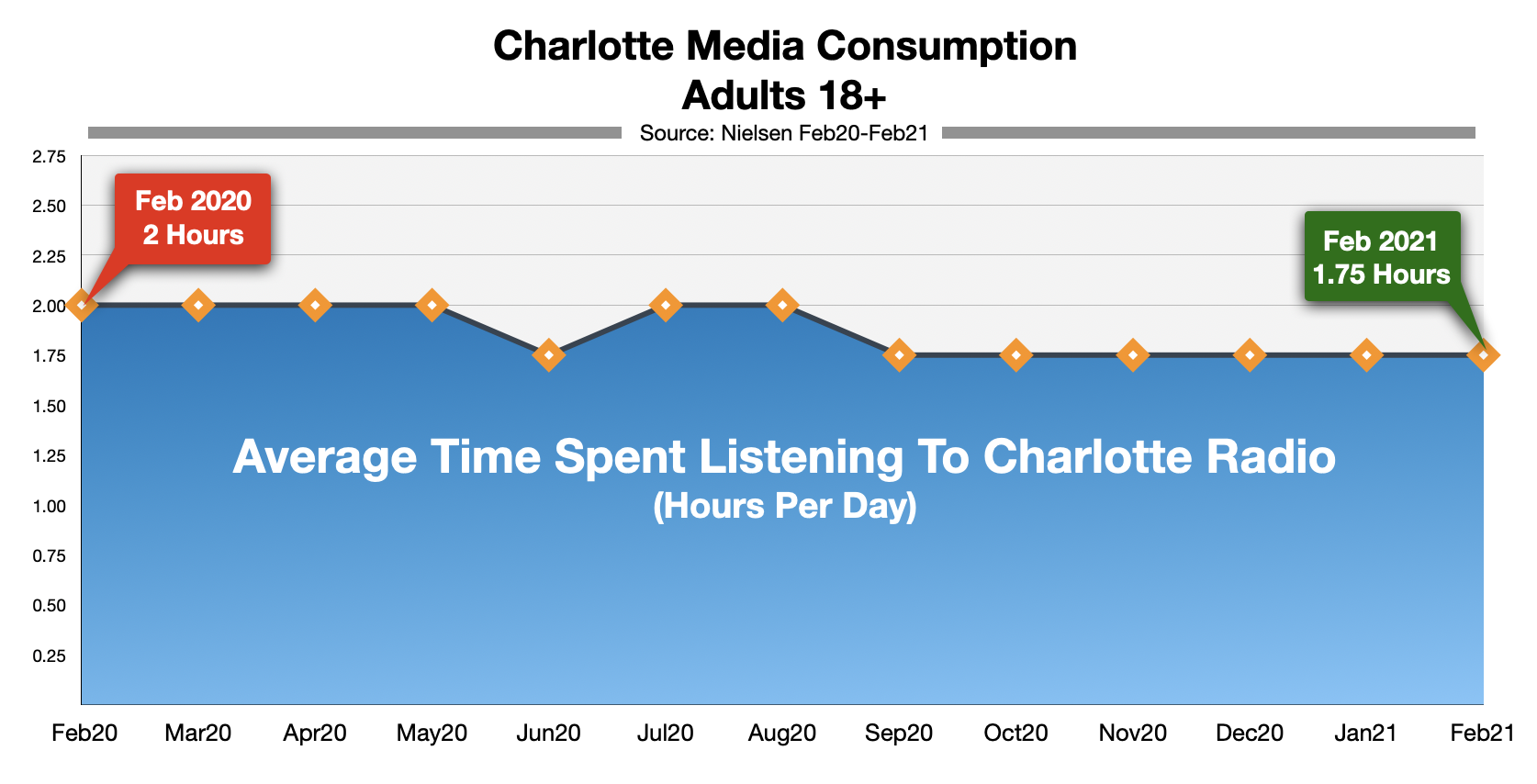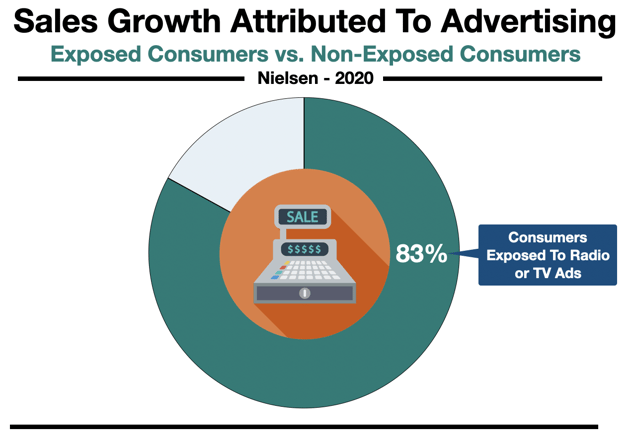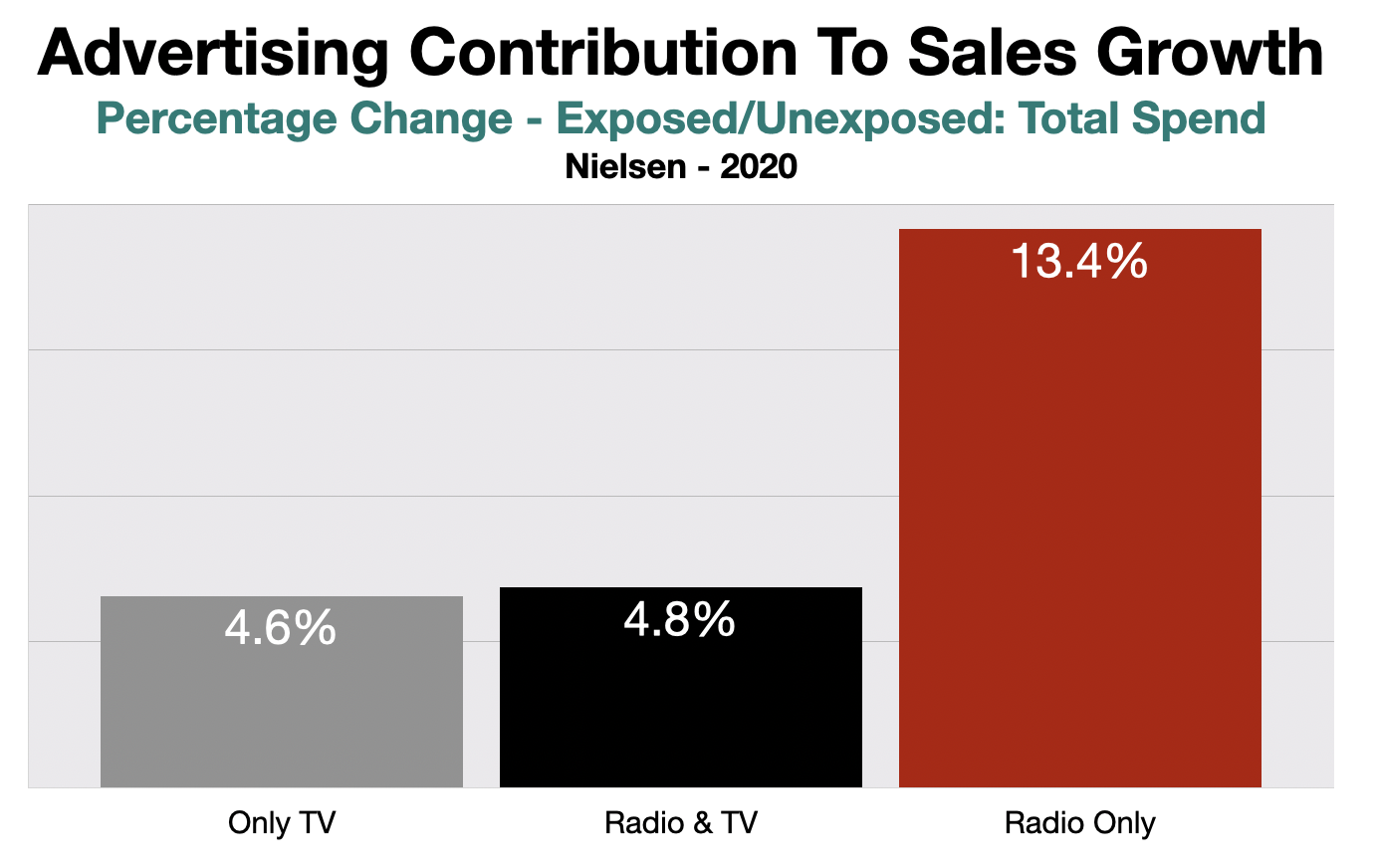 In 1922, when WBT became the first radio station in Charlotte, NC, many considered the medium a fad. Even in 1937, a hit song by George Gershwin, Our Love Is Here To Stay, considered radio to be a "passing fancy and in time may go".
In 1922, when WBT became the first radio station in Charlotte, NC, many considered the medium a fad. Even in 1937, a hit song by George Gershwin, Our Love Is Here To Stay, considered radio to be a "passing fancy and in time may go".
Charlotte radio, however, has survived the advent of talking-movies, television, eight tracks, and cassettes in stereo. More recently, radio has withstood a tsunami of digital options including, YouTube, SiriusXM, Pandora, and Spotify.
As the Coronavirus pandemic rolls over into a second year, Charlotte radio has hung tough and not ceded its ground despite listener's shifting lifestyles. This is crucial news for local small business owners who depend on local stations to market their goods and services.
Each week, according to Nielsen, Charlotte radio reaches more consumers than all other local advertising options. More than local TV and local cable. More than streaming video options like Netflix, Hulu, and Amazon Prime. And more than online audio platforms like Pandora and Spotify.
Radio's dominance in the media universe is not only true in Charlotte. It is a fact across the country as well.
 Last week, Nielsen released its latest survey of America's media consumption. The research reveals that consumers still prefer local radio over television and digital options.
Last week, Nielsen released its latest survey of America's media consumption. The research reveals that consumers still prefer local radio over television and digital options.
At the onset of the pandemic, as many local consumers abandoned their daily commutes and sheltered at home, they took their favorite Charlotte radio stations with them.
Historically, radio's strength was among Charlotte consumers who listened away from home. But that shifted to at-home listening during the worst days of the pandemic. As listeners begin to return to the roads, their favorite stores, and their offices, radio is going back with them.
Despite the shift in listening locations, the amount of time consumers spend with Charlotte radio has remained remarkably consistent. According to the most recent Nielsen research, the time adults allot to radio listening is back to pre-pandemic levels.
Charlotte radio's resiliency during the pandemic is encouraging to local business owners who depend on local media to drive sales.
Between April 30 and May 27 of last year, the darkest days of the pandemic, Nielsen analyzed the sales results of a retailer who conducted an advertising campaign during that period using both radio and TV.*
According to Nielsen, during the campaign period, the retailer experienced a 6.2% increase in sales growth. The majority of the increase came from households where consumers were exposed to the advertising campaign.
When Nielsen looked at how each advertising medium contributed to sales growth, the consumers who were exposed only to the retailer's radio commercials were three times more likely to make a purchase than those exposed only to television advertising.
Overall, according to Nielsen, people who were exposed to only the retailer's radio commercials represented only 20% of all advertising impressions. However, these same consumers were responsible for 42% of the sales increases.
This is the bottom-line of this study for any Charlotte small business owner who is struggling with where to place their limited marketing budgets. Radio produces the strongest increase in sales for every dollar invested. In this Nielsen study, the retailer earned a $28,000 increase in sales for every $1000 spent.
These findings confirm 21 previous studies by Nielsen, which demonstrate that, on average, radio advertising returns $10,000 in advertising for every $1000 invested. The chart below shows the range of returns from each study.
Radio advertising has helped Charlotte business small business owners survive wars, depressions, recessions, and natural disasters. Clearly, a worldwide pandemic is no match for radio's strength, either.


.png?noresize=true&width=632&name=Advertising%20In%20Charlotte%20Media%20Reach%202020(r2).png)





